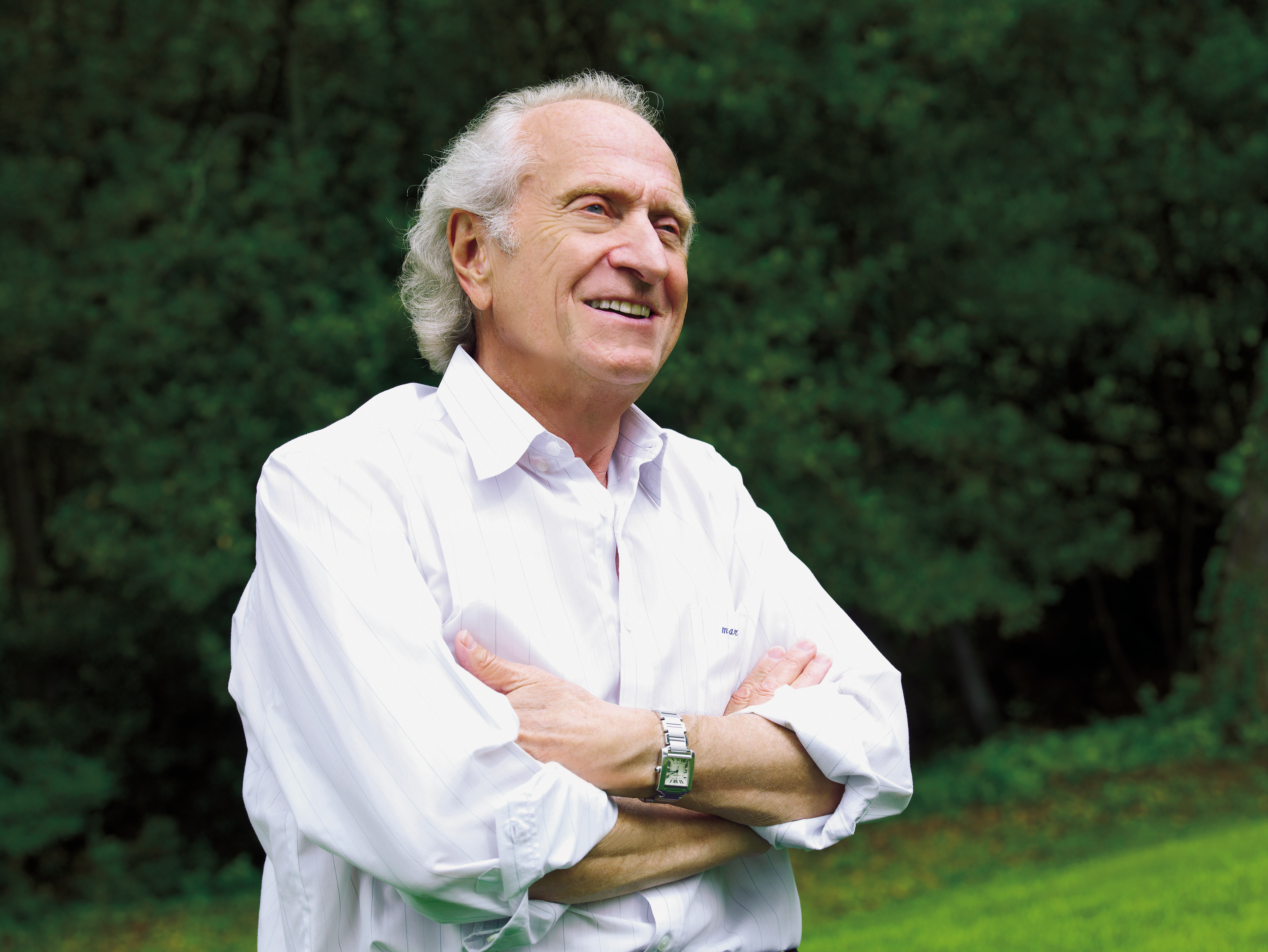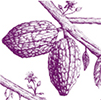Interview with our patron, Michel Roux OBE

Renowned chef Michel Roux OBE is viewed as one of the godfathers of modern restaurant cuisine, making him no stranger to delivering excellence and creativity in equal measure.
We spoke to our celebrated patron about his passion for fine chocolate and the impact of the Academy and its coveted awards on our flourishing sector.
Since the Academy of Chocolate first launched in 2005, the chocolate world has changed dramatically. How do you feel things have moved on?
My fear is that we lose sight of the most important thing, the taste of the chocolate. People are too ready to complicate what is a simple, beautiful product. Even before they have developed their palate or knowledge, some are adding all manner of ingredients without understanding the internal flavour profile of the chocolate, the cocoa bean it is made from. Experimentation is good but must be grounded in solid basics. Too much can be sacrificed chasing trends.
Do you feel chocolate is getting better in the UK and beyond?
There has been an explosion of producers, some are excellent and the industry is exciting. It is a product much like tea and wine, the quality depends on the chocolate makers knowing their product and building close relationships with the cocoa producers.
Why are you so passionate about fine chocolate and the work of the Academy of Chocolate?
Because it is one area of gastronomy that is superb, the cocoa bean is a unique, quality product. Fine quality chocolate is like wine and like good wine, it bears a range of flavour profiles depending on its terroir. How it has been grown, the geology and climate all have an impact, along with how it is processed. Everything from the soil to the sky has an impact. This unique character is fascinating. Some cocoa beans are more fruity, some are peppery, some are earthy.
Is awareness of fine chocolate the highest it has ever been? If so, why do you think that is?
There are master chocolatiers, who understand their ingredients and achieve excellence, like the best chefs. It’s just a matter of using the best ingredients and knowing what to do with them. There are exceptional artisanal producers but there are also confectioners who make chocolate for the masses with a product that bears little resemblance to the real thing using vegetable oils and additives.
Do you feel people are consuming chocolate differently?
I think chocolate has a mystique that fascinates the consumer yet chocolate is made up of just three ingredients – cacao beans, cocoa butter and sugar. There is increasing appreciation of quality and increasing demand for new tastes and combinations.
When we first launched our awards in 2005, we only had 12 entries. This year, we had 1,600 entries from across the world, spanning 45 countries. How do you feel the Academy of Chocolate has impacted the sector?
Stunning progress has been made in just 15 years, the Academy has performed a brilliant role as an ambassador for chocolate. It has helped with education and training not just in the world of using chocolate as an ingredient but also opening eyes to its origins and the production process behind the scenes. It has helped transform the market by increasing awareness. A market once saturated with commercial, unsustainable concerns that exploited farms and crops to benefit mass consumerism has been transformed. It has helped small producers by ensuring the right price is paid and reinforcing traceability, trust and sustainability.
We see an increase in small artisanal producers entering our awards every year, what do you think has prompted this?
There are more bean to bar chocolate makers. There has been a shift in awareness for sustainable and quality chocolate.
Do you feel we are all doing enough to ensure that fine chocolate is sustainable?
Chocolate is one area in the world of gastronomy where politics has almost as strong a profile as the product. More and more, the consumer is prioritising sustainability almost above the quality of the products we eat. We have made progress but could always do more. It is so important to support trusted co operatives, and transparency of each step of the production process. Farmers are now getting more support to ensure they achieve a fair price and can sustain their communities.
Do you feel that we are seeing more of a shift towards fine chocolate as opposed to confectionery? If so, why?
I think that fine chocolate is now more appreciated than ever before. People are demanding quality and are prepared to pay for it. Chocolate can almost taste savoury with so many complex flavours and people realise its versatility. The explosion in popularity of “chocolate flight” tasting experiences akin to “wine tastings” is testament to that. People realise that the more additions and modifications you introduce, the more you can spoil a wonderful natural product.


